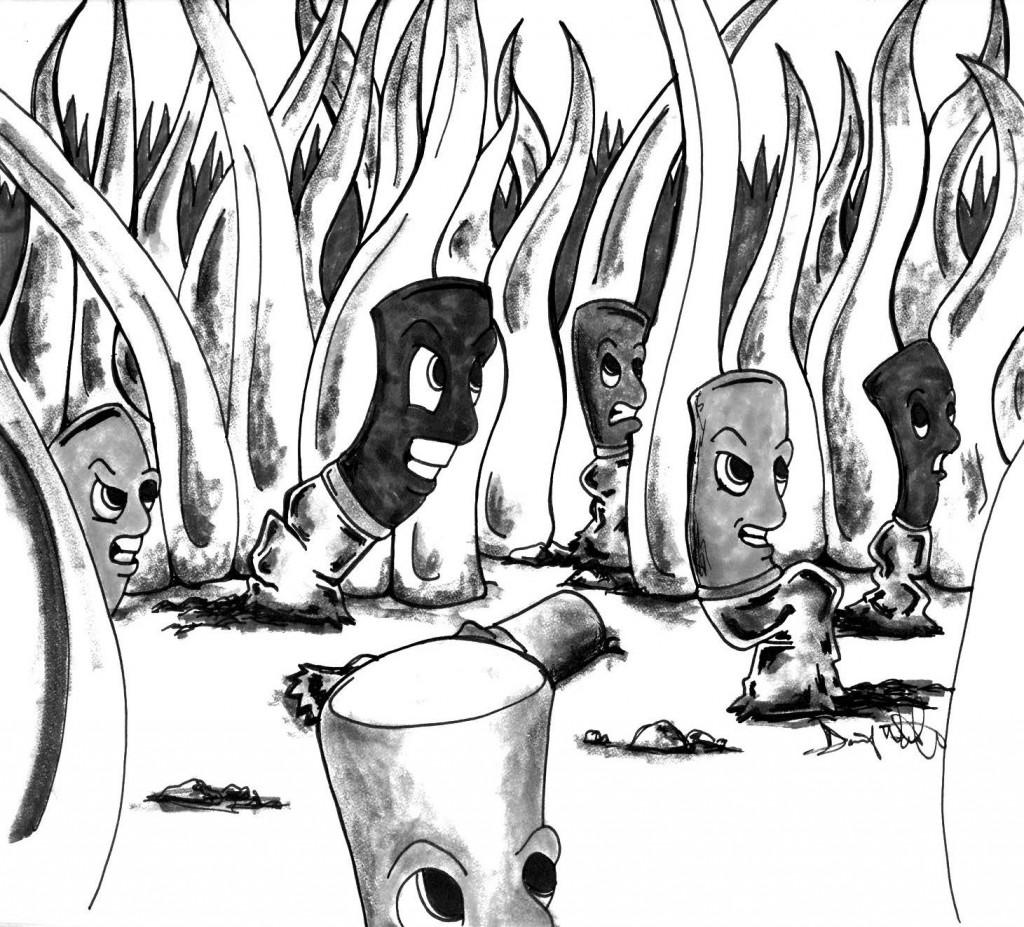By Shelly Williams/managing editor
Last year, natural gas drilling rigs were put on three of the five TCC campuses as part of the Barnett Shale project. Since then, construction for these rigs on SE, NE and South campuses has been steady.
Though some of the rigs are struggling to bring in the natural resource, the rig on South Campus has brought in revenue for the college.
The drilling rig on the east side of SE Campus by Highway 360 hasn’t extracted any natural gas at this time. The reason, vice chancellor for operations and planning services David Wells said, was because no pipeline has been laid down at the rig site yet.
Wells said to help the process go faster, the TCC board, in a Nov. 19 meeting, will discuss placing an easement, or gathering line, on the college property from the well site to a gas pipeline that already exists north of SE Campus.
“The easement allows them to lay a pipeline from the gas wells over to a transport gas line,” Wells said. “The wells under our property are called gathering pipelines because they gather the gas from the rigs from where the wells are drilled and take it over to another pipeline. That pipeline then transports it to its eventual destination.
“Once that pipeline is in place, then their gas can hit the market. So you don’t get paid for it until it’s sold.”
A pipeline already exists on South Campus. Yet, no gas well has been drilled from a path site on campus, but a piece of property owned by Fort Worth ISD that joins the school on the east side has a rig, Wells said.
Six gas wells were drilled under South Campus for the joining property. Wells said gas has been extracted from the path site.
“As of Oct. 9, that gas has rated about $463,000 in revenue to the college,” he said. “Given current board policy, that revenue is placed in a scholarship fund to fund the Stars of Tomorrow program.”
Wells said no drilling has begun on NW Campus yet because TCC doesn’t own the mineral rights to the property. However, TCC does own the mineral rights for the downtown campus, but none of the rights has been leased at this time.
NE Campus currently has two path sites, one on the north side and one on the south side of the school.
“On NE Campus, we have awarded them an easement, or gathering pipeline, but it has not yet been installed,” Wells said.
Though the rigs are productive, a recently released news article on the WFAA news Web site said the Texas Commission on Environmental Quality is conducting a study on Barnett Shale rigs to test the air quality after some potentially hazardous air pollutants were found around other rigs. Benzene, a harmful toxin, was the agent discovered in the air.
“It can cause cancer due to prolonged exposure, and you get it from industrial sources. Gas drilling is probably not the only one,” said Dr. Woody Kageler, NE director of health sciences.
He said the chemical could cause leukemia, affecting bone marrow and reducing the production of red blood cells. To avoid the hazard, he said it’s best to stay away from pollution in general.
“I don’t think you will have a single exposure to benzene unless you are using it in industry because most pollution is multiple agents,” he said. “It’s not just a release of benzene or something else. Benzene is also in cigarette smoke too. It doesn’t hang around the body very long — it’s eliminated. So you can’t take a blood test and say there is a high level of benzene unless you’ve just had an exposure.”
Kageler said that it’s highly unlikely students near the rigs could get significant exposure.
“The fact that we’ve got two gas wells on either side of our campus really doesn’t pose that environmental hazard unless there is an unexpected release and there is someone close by,” he said. “You’re not going to get it just because it’s next door to you.”
Wells said that if any of the rigs demonstrated the harmful emissions, then it’s something the campuses would be concerned about.
“To my knowledge, there have been no complaints or concerns raised about the wells that we have,” Wells said. “The fact that we have not seen a lot of issues raised in the media outlets doesn’t mean that we aren’t concerned, but it could also mean that it’s more of a non-issue. But it’s still a concern enough for us to take a look at it and see what’s going on and see if there is a reason for us to take any action.”























